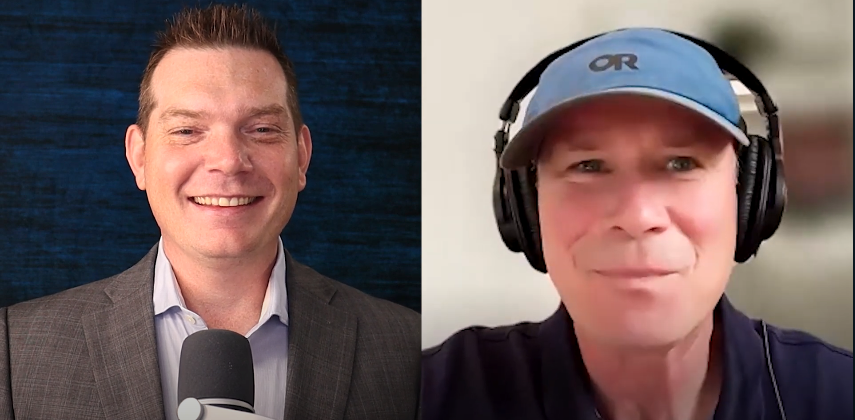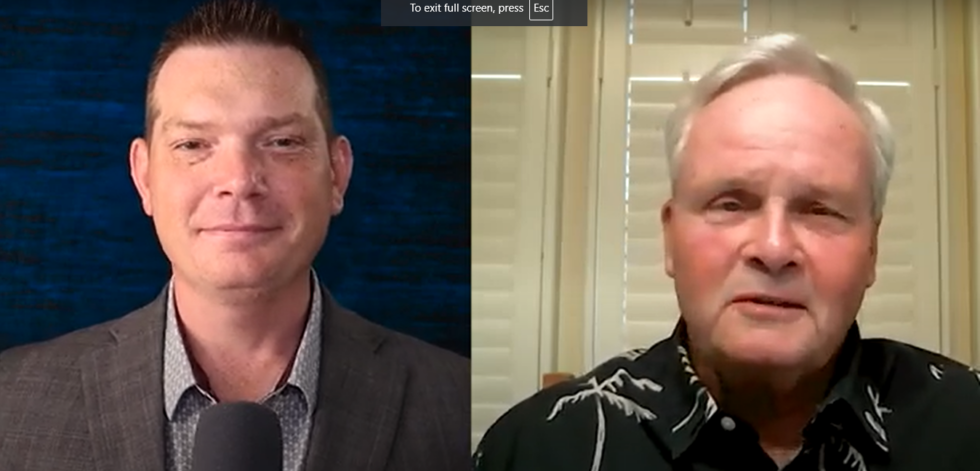Most entrepreneurs focus on building wealth, but few realize that mental health is the foundation of long-term success.
In my conversation with Mark Fujiwara, we uncover the hidden mental health challenges entrepreneurs face—from anxiety and burnout to the pressure of always having to perform. Mark shares his personal journey, the strategies that helped him regain control, and why building emotional capital and high-character communities is just as critical as financial planning.
I’ve had the pleasure of knowing Mark Fujiwara through the Epic FIT Network, a community of visionary entrepreneurs focused on collaboration and growth. In the time we’ve known each other, I’ve learned incredible things from him—especially about the mental health struggles entrepreneurs face and how to overcome them.

If you’ve ever felt overwhelmed or alone in your entrepreneurial journey, this conversation will give you the tools to protect your well-being while building lasting success.
The Silent Struggle: Why Mental Health Matters for Entrepreneurs
I ask Mark what led him to focus so deeply on mental health.
He tells me he has struggled with mental health for as long as he can remember. Anxiety, depression, panic attacks—it was always there, but he kept it hidden. Then, at 21, he lost his cousin to suicide. His cousin was just 15 years old. While his family questioned why it happened, Mark already knew. He had felt that way too.
For nearly five decades, he suffered in silence. But when he finally started opening up, something surprising happened.
“I realized how many other entrepreneurs were carrying the same burden,” he says.
One of his closest friendships didn’t begin with business—it started with a conversation about mental health. He met a highly successful entrepreneur who had exited his company for nine figures, and instead of discussing deals, they shared personal struggles.
That moment changed everything. Financial success doesn’t automatically bring happiness. Entrepreneurs spend years building businesses, believing that a major exit will give them freedom. But when the grind stops, many feel lost.
Both Mark and Kim Butler remind us that purpose—not escape—is the real retirement plan.
Finding purpose beyond wealth is essential because financial success alone isn’t enough to create long-term fulfillment.
This is why strategic exit planning for entrepreneurs (as explained in my podcast with Mike Malatesta) is just as critical as wealth-building itself—it ensures that your transition is not just financially but also emotionally and mentally sustainable.

The Hidden Struggles Entrepreneurs Face
I ask Mark why mental health challenges hit entrepreneurs harder than most.
“I think everyone struggles with some form of mental health issue, whether they admit it or not,” he says. “But for entrepreneurs, certain factors make it even more intense.”
He breaks it down into three key triggers:
- Trauma: Personal or professional hardships that shape their outlook.
- Uncertainty: The unpredictable nature of running a business.
- Loneliness: The feeling that no one understands the journey.
Mark Fujiwara shares how even at family gatherings, he often feels disconnected. People see his financial success but don’t see the anxiety, burnout, or pressure that comes with it.
“Even my closest friends and family don’t really understand me,” he says. “They see that I’m doing well, but they don’t see the stress. And when entrepreneurs open up about anxiety or depression, the response is often: ‘What do you have to be stressed about?’”
The reality is, many entrepreneurs suffer in silence because they feel misunderstood. Mark emphasizes the need for a strong support system—people who understand the entrepreneurial mindset and can provide real emotional support.
This struggle is more common than people realize, and it’s one of the key reasons why most entrepreneurs struggle to sustain long-term success.
The Power of Vulnerability: How Sharing Creates Strength
Mark’s biggest breakthrough came when he finally admitted his struggles.
“Until recently, I had a massive fear of public speaking,” he says. “Almost every time I spoke to more than five people, I had a panic attack.”
For years, he hid his struggles, afraid clients would see him as weak. He even avoided publicly supporting mental health charities, worried it would damage his credibility.
Everything changed when he finally confided in a family member. To his surprise, she had been struggling too. That moment was more powerful than any therapy—it was the first time he truly felt seen.
Slowly, he started sharing his story with others. Instead of pushing people away, it strengthened relationships.
“Every single person I’ve ever shared my struggles with has never walked away. In fact, almost every time, it strengthens the relationship.”
Mark’s experience proves a simple truth: The moment you start sharing, you realize you were never alone.
Mark Fujiwara: The Role of Community in Recovery
Mark has built a 24/7 emergency contact list of entrepreneurs who can reach him anytime. If they text 911 or call twice in a row, he picks up—no matter what.
“I’ve had people tell me that just knowing I’m there has saved their life,” he says.
Mark Fujiwara believes that the right community is essential for mental health. He envisions curated networks where entrepreneurs support each other—not just in business, but in life.
- Exit entrepreneurs mentor struggling startups, providing both business and mental health support.
- AI-driven matching systems connect individuals based on values and experiences.
- Safe spaces where vulnerability is encouraged, not hidden.
This isn’t just about networking—it’s about creating a system where entrepreneurs no longer feel alone in their struggles.
Building strong, character-driven communities ensures that leaders are not just successful but also resilient, ethical, and purpose-driven.
The role of character in leadership, as revealed in my podcast with Lawrence Reed, is essential in fostering these high-integrity networks.

Key Takeaways from the Conversation
- Success doesn’t eliminate mental health struggles. Entrepreneurs face unique pressures, from financial stress to uncertainty and isolation.
- Vulnerability is a strength, not a weakness. Mark’s journey shows that sharing struggles builds stronger relationships, not weaker ones.
- Having the right support system is essential. Too many entrepreneurs feel misunderstood—finding a community of like-minded individuals makes a difference.
- Saying “no” is just as important as saying “yes.” Overcommitment leads to burnout; protecting time and energy is crucial.
- Mental health should be prioritized like financial health. Without emotional resilience, even the most successful business can feel empty.
If you take one thing from this conversation, let it be this: You are not alone. Prioritizing your well-being is the key to building lasting success.
Want to unlock your entrepreneurial potential?
Get my free guide on “Maximizing Success By Understanding How You Function.”